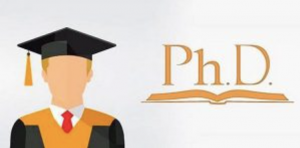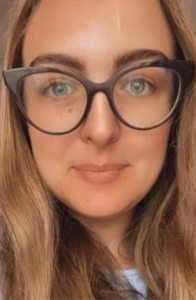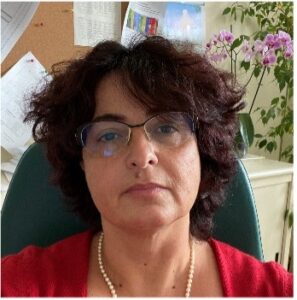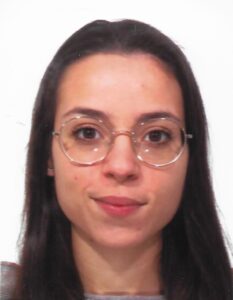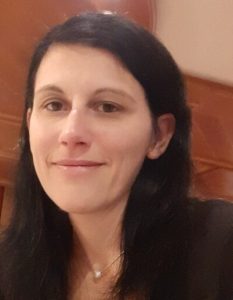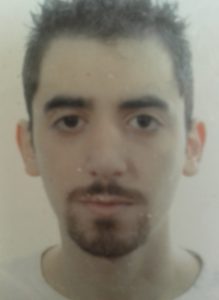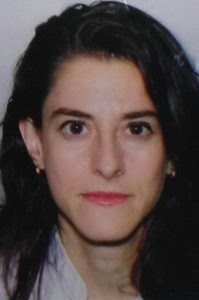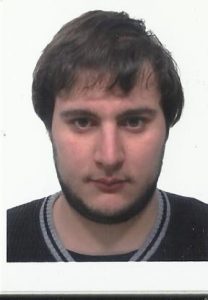Risultati laboratorio 1° semestre
Calendario esami di lingua araba e letteratura araba
Risultati esami scritti Lingua Araba 28 gennaio 2014
Esito Esami Scritti Gennaio Tecnica Professionale
Date degli esami
Ph.D. Students
XXXVII CICLO
Nicolò ZAMPERLIN (tutor: Prof. Francesco Paoli)
I completed my bachelor and master degrees in Philosophy at the University of Padua, the former one under the supervision of Prof. Carlo Scilironi, the latter one under Prof. Massimiliano Carrara. I also graduated in Logic at the Institute for Logic, Language and Computation of the University of Amsterdam, under the joint supervision of Prof. Robert van Rooij and Prof. Massimiliano Carrara. In both my master theses I studied formal semantics for vague statements. The main areas of my research interest are philosophy of language and formal logic, in particular algebraic logic, which I am currently studying under the supervision of Prof. Francesco Paoli.
Ludovica FANNI (tutor: Prof. Giovanni Bonaiuti)
Ludovica Fanni is a pedagogist and hr. She graduated in “Management of educational services” in 2019 and in 2020 she pursued a Master in Human Resources focused on guidance and tutoring. She collaborated in the POT project “Orientation and tutoring paths to promote academic and professional success” of the local unit of the University of Cagliari. Currently, she is a PhD student in “Philosophy, Epistemology, Human Sciences” at University of Cagliari, where she’s developing a research project on the possibility to use a digital tool that aims to support human science student during their university studies. The main ares of her research interest concerns the curricular academic internships and students professional development connected to digital technologies and methodologies.
Luca GAVIANO (tutor: Prof.ssa Donatella Petretto)
Luca Gaviano is a PHD student in Philosophy, Epistemology, Human Sciences, Department of Education, Philosophy and Psychology, University of Cagliari, with research project on the Clinical Psychology of Ageing.
He published chapters on books and papers in peer-reviewed journals on the following topics:
- Promotion of health and wellbeing
- Semantic of ageing
- Cognitive ageing and Neurocognitive Disorders
- Psychology of Disability
He participates in national and international research programs on the same topic
He is a chartered psychologist with clinical experience in Clinical Psychology of Ageing and of Disability.
He is graduated in Psychology at the University of Cagliari.
Rita ESPOSITO (tutor: Prof. Giuliano Vivanet)
Rita Esposito is a school principal. Her research interests concern Language teaching with particular regard to grammar.
The answerable research question to which the doctoral project intends to respond is the possibility of identifying effective strategies to improve the teaching of Italian grammar in first cycle schools.
In first instance, she intends to conduct a systematic review of the international literature on the problem, referring the research to school contexts similar to those under study and therefore referring to students of the age group 8-13 years in the learning phase of the L1. The review will be integrated by the study of the Italian context and will have as its objective the definition of the protocol of a wide-ranging experimentation, which allows to obtain useful data for a substantial generalization and the setting up of an EB experimental program based on effective teaching strategies.
Andres Camilo GRANDA ARANGO (tutor: Prof. Giuseppe Sergioli; co-tutors: Dott. Gustavo Martin Bosyk, Dott. Federico Hernan Holik)
I got my master degree in Physics at the University of Antioquia-Colombia, with a thesis entitled “Asymptotic quantum mechanics for N coupled oscillators”. Since then, I am a PhD scholar at the University of Cagliari. My field of research includes the fundamentals of quantum mechanics, particularly focused on the problem of how is the connection that exists between two apparently different theories: classical mechanics and quantum mechanics. My recent contributions are subject to the creation of a new mathematical formalism, called asymptotic quantum mechanics, based on probability density, asymptotic behaviors and Fourier transforms, which has allowed to recover classical probability densities plus quantum-like corrections in physical systems such as the harmonic oscillator, the hydrogen atom, particles enclosed in flat and spherical wells, free fall and recently in particles with relativistic characteristics. The current goal of my research is to incorporate machine learning. That is, using machine learning techniques, we will focus on the classification problem to try to discern whether certain states that a source has are intertwined or not, whether they exhibit coherence or not, or whether that particular quantum system was able to reach its classical limit.
Stefania FALCHI (tutor: Prof. Antioco Luigi Zurru; co-tutor: Prof. Giovanni Bonaiuti)
After a graduation in “Primary Education” at the University of Cagliari under the supervision of Prof. Antioco Luigi Zurru, in 2021 Stefania Falchi did a master’s degree in “SLD (Specific Learning Disorders), SEN (Special Education Needs) and Developmental Disorders. Psychopedagogy, Teaching Methods, Computational Thinking (Coding) and Didactics of inclusion” at the University of Urbino Carlo Bo.
Currently, she is a PhD student in “Philosophy, Epistemology, Human Sciences” (NOP R&I on Green subjects) at University of Cagliari, where she is developing a research project on the possibility to generate renewed green learning environments and opportunities derived from the ecological transition in primary school. Her main research interests are pedagogy, primary education, innovation in teaching practice and teacher professional development.
XXXVI CICLO
Ines ALVES DE MATOS PIRES FERREIRA (tutor: Prof. Marco Guicciardi; co-tutor: Prof. Ferdinando Fornara)

Daniela FADDA (tutor: Prof. Giuliano Vivanet; co-tutor:Dott.ssa Carol Salis – CRS4)
Daniela Fadda is graduated in Psychology from the University of Cagliari and she received a PhD in Cognitive and Personality Psychology from the University La Sapienza in Rome. Her research experience included well-being and school adjustment in adolescence and the study of digital technologies for scientific education. She is a member of the Italian Association of Psychology and she is an Associate Editor for Frontiers in Psychology. She has published several research papers on psychological well-being, self-concept, motivation in mathematics, cognitive performances and educational technology. Her scientific interests include also methodology and statistic for human sciences with particular reference to factorial analysis, structural equation modelling and meta-analysis.
Fabrizio MELONI (tutor: Prof. Elisabetta Gola)
André MURGIA (tutor: Prof.ssa Angela Taraborrelli)
I graduated in philosophy in 2017, under the supervision of Professor Annamaria Loche, discussing a dissertation on the concept of constituent power in the Prince of Machiavelli. I obtained my master’s degree in philosophy and theory of communication, again at the University of Cagliari, in 2020. Under the supervision of Professor Angela Taraborrelli, I tackled the problem of the public sphere as it is presented during the intellectual path of Habermas, trying to discuss the normative value of this concept, also in light of the processes of globalization.
I am currently a PhD student at the University of Cagliari, where I am carrying out a research project on the theories of democracy and democratization. My main interests are in the field of political philosophy and critical theory.
Gandolfo VERGOTTINI (tutor: Prof. Antonio Ledda)
In 2016, I graduated in Philosophy at the University of Cagliari. My thesis was about Socrate with a special focus on several feature of his personality. I worked on this project under the supervision of Professor Elisabetta Cattanei. In 2020, I achieved a master’s degree in Philosophy and Theories of Communication discussing a dissertation on the issues related to the infinity in mathematics, focusing on the axiom of choice. Professor Antonio Ledda was my supervisor. Now I’m a Phd student at the University of Cagliari. Investigating a connection between substructural and quantum logics is the main goal of my project: this path has started from the study of a specific algebraic structure, the left-residuated l-groupoids. My main interests are in the field of the algebraic logic and the universal algebra.
Cristiano VIDALI (tutor: Prof. Pierpaolo Ciccarelli)
I earned a Bachelor’s degree in Philosophy from the University of Milan, discussing a dissertation on Jean-Paul Sartre’s ontology, being supervised by Professor Andrea Zhok. I then obtained a Master’s degree from “Vita-Salute” San Raffaele University, where I worked under the supervision of Massimo Cacciari on Alexandre Kojève’s thought, suggesting an original interpretation of the idea of the “end of history” by relating it to the concepts of tradition and social acceleration. My main interests focus on one hand on philosophy of history, especially Hegelianism and its Marxist heritage, and on the other hand on phenomenology and existentialism (Martin Heidegger, Jean-Paul Sartre, Merleau-Ponty). I am currently a PhD student in “Philosophy, Epistemology, Human Sciences” at University of Cagliari, pursuing a research project on the relationship between phenomenology and cognitive sciences, with a particular reference to psychology of attention.
Enrica SPADA (tutor: Prof. Gabriella Baptist, co-tutor Prof. Claudia Secci)
Enrica Spada is graduated in Dance at The Folkwang University in Essen-Germany, under the direction of Pina Bausch. She earned a Bachelor’s degree in Educational Sciences from the University of Cagliari, discussing a dissertation on the subject of play, body and dance in education, and she also graduated in Pedagogical Sciences at Cagliari University with a dissertation on the aesthetic-philosophical approach of Marìa Zambrano and Jean-Luc Nancy in relation to a pedagogical reflection on the body in movement and dance. She is currently a PhD student in “Philosophy, Epistemology, Human Sciences” at University of Cagliari, pursuing a research project (PON FSC for development and cohesion) on the possibility to generate new social bonds, social cohesion and to encourage dialogue between generations through dance, theatre, and contemporary arts, for a sustainable social and economic development in deprived areas.
XXXIV CICLO
Riccardo BONFIGLIOLI, Per una mappa concettuale della natura umana in Adam Smith (tutor: Prof.ssa Angela Taraborrelli)
Riccardo Bonfiglioli graduated in Philosophical Sciences at the University of Bologna under the supervision of Prof. Alberto Burgio. He has carried out inquiries into german area authors (Kant, Freud, Adorno, Marcuse) and french area authors (Voltaire, Montesquieu). PhD student in Political Philosophy under the supervision of Prof. Angela Taraborrelli, Prof. Laurent Jaffro and Prof. Michele Bee at the Department of Pedagogy, Psychology, Philosophy of the University of Cagliari, he is doing a research in co-agreement with PHARE on the concept of human nature and the self within the framework of Adam Smith’s political thought.
Alice GUERRIERI, Tecnologie per le produzioni audio-video, gaming ed editoria digitale (PON Ricerca e Innovazione; tutor: Prof.ssa Elisabetta Gola, Prof. Luca Vargiu)
She is graduated in Art History and she is specialized in master’s degree Management of communication product and services. Her research interests include visual communication, metaphorical representation of cultural processes and technology innovation for e-learning. She participated in national projects: “LITTERA – Literature and Information Technology: extended texts and Augmented Reality” (09/2019-05/2020) and “Cluster top-down “Pac-Pac”- point-and-click and cultural heritage” (05/2019-10/2019). She collaborated as tutor of Communication Sciences degree (2014-2019). Publications: (1) Guerrieri A., La miniera e il suo immaginario artistico (paper) in Gola E., Ilardi E. (curated by), IMMAGINARI DAL SOTTOSUOLO. Le aree minerarie all’epoca del web: il caso Sardegna, Manifestolibri Roma, 2020, pp.33-70. (2) Capaldi D., Gola E., Guerrieri A., Ilardi E., Insegnare la Storia con le serie TV. Il medioevo visto con gli occhi de Il trono di spade (paper) in RiMe n. 1/I n. s., dic. 2017, pp.127-137. (2) Guerrieri A., La donna nella pittura di Giuseppe De Nittis, l’arte, la moda e la vie moderne (essay), Maremmi Editori, Firenze 2010.
Lucrezia PELIZZON, Emozione e deduzione. Componenti emotive nei comportamenti inferenziali (tutor: Prof. Francesco Paoli)
I graduated in Philosophical Disciplines from the University Ca’ Foscari of Venice and I am a PhD student in Logic and Epistemology at University of Cagliari. My research interest is focussed on the relationship between inferential processes and emotions. In particular I aim to understand the positive effects that emotions can have on deductive reasoning. I am improving my knowledge of Informal Logic and of Psychology of Reasoning and I am training my expertise to use experimental methods to empirically verify logical behaviour.
Andrea SPANO, Educazione professionale e formazione umana tra teoria e pratica (tutor: Prof.ssa Claudia Secci)
Matteo VAROLI, Le matematiche nella letteratura pseudopitagorica (tutor: Prof.ssa Elisabetta Cattanei)
In 2018, I graduated in Classical Philology from Università degli Studi di Genova, with a dissertation on the treatise On the Nature of the Cosmos and the Soul, falsely attributed to Timaeus of Locri. I am currently a PhD student of Philosophy at Università degli Studi di Cagliari; the aim of my research project, which consists of a collection, translation and commentary on Greek and Latin fragments and testimonia, is to investigate sources for Hellenistic and Post-Hellenistic Pythagorean mathematics, especially in the Pythagorean Apocrypha, meaning by this term the field of knowledge which the Ancients called mathemata, namely arithmetic, geometry, music and astronomy, with a glance to practical disciplines such as optics and mechanics, and even to what we consider as pseudo-sciences, arithmology and astrology. I’ve recently published an article (on Lexis 2019) dealing with some Pythagorean Apocrypha (Archytas, On Intelligence and Sense Perception; Brotinos; Aresas; Ekkelos) linked to the Platonist exegesis of Plato’s Republic. I’ve also given a talk in an international context, during the 10th edition of the Atelier “Pseudopythagorica” promoted by CNRS and LabEx Hastec in Paris (October 2nd, 2019), on questions about physics, astronomy, and exegesis in the treatise On the Nature of the Cosmos and the Soul. Amongst my research interests, there are ancient physics, cosmology and metaphysics, Pythagoreanism, Neopythagoreans, Pythagorean Apocrypha, the history of Platonism and the Old Academy, history of ancient sciences, music, arithmetic and astronomy, tradition and exegesis of philosophical and mathematical texts in Antiquity, pseudepigraphy in the Greek and Roman world.
Elenco Docenti
Coordinatrice (nell’anno accademico 2019-2020)
Gabriella Baptist (baptist@unica.it)
Vicecoordinatore:
Giuseppe Sergioli (giuseppe.sergioli@unica.it)
Collegio dei Docenti (fino all’anno accademico 2019-2020)
Baptist Gabriella (Filosofia morale – baptist@unica.it)
Barsotti Susanna (Storia della pedagogia – barsotti@unica.it)
Bonaiuti Giovanni (Didattica e pedagogia speciale – g.bonaiuti@unica.it)
Busacchi Vinicio (Filosofia teoretica – busacchi@unica.it)
Camerota Michele (Storia della scienza e delle tecniche – camerota@unica.it)
Cattanei Elisabetta (Università di Genova, Storia della filosofia antica – elisabetta.cattanei@unige.it)
Ciccarelli Pierpaolo (Filosofia morale – pierpaolo.ciccarelli@unica.it)
Crasta Francesca Maria (Storia della filosofia – crasta@unica.it)
Ervas Francesca (Filosofia e teoria dei linguaggi – ervas@unica.it)
Fadda Rita (Pedagogia generale e sociale – rfadda@unica.it)
Fanari Rachele (Psicologia dello sviluppo e dell’educazione – rfanari@unica.it)
Freytes Hector (Logica matematica – hfreytes@gmail.com)
Girard Pierre (Université Lyon III Jean Moulin – pgirard75@orange.fr)
Giunti Marco (Filosofia teoretica – giunti@unica.it)
Giuntini Roberto (Logica e filosofia della scienza – giuntini@unica.it)
Gola Elisabetta (Filosofia e teoria dei linguaggi – egola@unica.it)
Granata Giovanna (Archivistica, bibliografia e biblioteconomia – ggranata@unica.it)
Guicciardi Marco (Psicometria – marco.guicciardi@unica.it)
Ledda Antonio (Logica e filosofia della scienza – antonio.ledda@unica.it)
Nieddu Anna Maria (Filosofia morale – anieddu@unica.it)
Orsucci Andrea (Storia della filosofia – andrea-orsucci@libero.it)
Ottaviani Alessandro (Storia della scienza e delle tecniche – alessandro.ottaviani@unica.it)
Paoli Francesco (Logica e filosofia della scienza – paoli@unica.it)
Secci Claudia (Pedagogia generale e sociale – csecci@unica.it)
Sergioli Giuseppe (Logica e filosofia della scienza – giuseppe.sergioli@unica.it)
Angela Taraborrelli (Filosofia politica – taraborrelli@unica.it)
Vargiu Luca (Estetica – luca.vargiu@unica.it)
Vivanet Giuliano (Pedagogia sperimentale – giuliano.vivanet@unica.it)
Wahrig Bettina (Technische Universität Braunschweig – b.wahrig@tu-braunschweig.de)
Dall’anno accademico 2020-2021 il Coordinatore sarà
Giuseppe Sergioli (Logica e filosofia della scienza – giuseppe.sergioli@unica.it)
Si aggiungono al Collegio i seguenti docenti:
Cristina Cabras (Psicologia sociale – ccabras@unica.it)
Christian De Ronde (CONICET, Buenos Aires, Argentina)
Roberta Fadda (Psicologia dello sviluppo e dell’educazione – robfadda@unica.it)
Emiliano Ilardi (Sociologia dei processi culturali e comunicativi – ilardi@unica.it)
Donatella Rita Petretto (Psicologia clinica – drpetretto@unica.it)
Laura Vismara (Psicologia clinica – vismara@unica.it)
Michele Zedda (Pedagogia generale e sociale – mzedda@unica.it)
Antioco Luigi Zurru (Didattica e pedagogia speciale – antiocoluigi.zurru@unica.it)
Al seguente link sarà possibile scaricare il form di richiesta di autorizzazione per i soggiorni di studio all’estero e per la frequenza di attività didattiche e di ricerca fuori sede, da inviare al Coordinatore del Corso di Dottorato. Le richieste di autorizzazione devono essere inviate con ragionevole anticipo, almeno 30 giorni prima della partenza prevista.
Qui di seguito la Scheda CFR e le linee guida per l’organizzazione della didattica linee-guida.
Qui di seguito il Regolamento del corso di Dottorato in Filosofia, Epistemologia e Storia della Cultura.
Il Regolamento dei corsi di Dottorato di ricerca dell’Ateneo di Cagliari si trova al sito: https://www.unica.it/unica/protected/185729/0/def/ref/DOC82040/.
External Certifications of English Language – Information and Table of Equivalences
Certificazioni internazionali di Lingua Inglese rilasciate di recente possono sostituire l’intera prova scritta o parti di essa, esonerare dalla frequenza delle esercitazioni (che non sono comunque obbligatorie ma consigliate anche per coloro in possesso di certificazione), e consentire l’accesso diretto alla prova orale già dagli appelli di gennaio e febbraio: si veda
DOCUMENTO CERTIFICAZIONI LINGUE
Per la verifica della certificazione esterna di Lingua Inglese durante l’emergenza coronavirus, le/gli student* in possesso di certificazione dovranno comunicare alla Prof. Virdis alcuni dati via email esclusivamente nel lasso di tempo compreso da dieci a tre giorni prima della prova orale che desiderano sostenere. I dati comunicati al di fuori di tale lasso di tempo non saranno presi in considerazione. Si prega di non allegare copia della certificazione.
I dati da comunicare via email sono cognome, nome e numero di matricola, più:
- Certificazioni Cambridge: lo Statement Of Results Number (a destra in alto nello Statement of Results) e la data di nascita; oppure condividere il proprio risultato con la Prof. Virdis tramite il proprio account personale Cambridge e informare la docente via email.
- Certificazioni IELTS: il Test Report Form (TRF) Number.
- Certificazioni TOEFL: la data di nascita.
- Certificazioni Trinity: il codice UER o il Trinity ID number.
Una certificazione esterna di livello B2 o superiore NON si può usare per più esoneri dalle prove scritte, ma per un esonero da una SOLA prova scritta a scelta dello studente. Si consiglia di utilizzare la certificazione per l’esonero dalla prova scritta di livello più alto.
Gli studenti di Lingua Inglese con certificazione esterna che sostengono la prova orale sono pregati di portare con sé l’originale della suddetta certificazione.
Spostamento date esami Lingua e letteratura greca e Filologia greca
Corporate Governance Presentations – Evaluation
Call for Papers on Metabolomics
On behalf of the Organizing Committee, it is my pleasure and privilege to invite all the interested researchers to send one or more papers for the Special issue edited by Biomed for the neonatal and pediatric metabolomics.
The quantitative analysis of metabolic spectra and metabolomics in biological systems can provide researchers a detailed functional view at a cellular level and also at an organizational level for tissues and organ systems. Metabolomics represents an important opportunity for investigation, especially for the fetus and newborns, under both normal and pathological conditions. Metabolomics technologies have the potential to measure a wide spectrum of metabolites with the possibility to obtain a picture of the consequences of young individuals’ interactions with the external environment.
Potential topics include, but are not limited to:
• Metabolomics and epigenetic events of interest in neonatology
• Metabolomics description of cardiovascular and respi- ratory systems diseases in neonatology
• Metabolomics description of brain disease in neonatology
• Metabolomics description of kidney disease in neonatology
• Modern clinical metabolomics: New methods and instrumentation for biomarkers research with metabolomics applied to neonatology
Please, find in the attached document PDF Call for Papers all the information for the submission. Please feel free also to contact the Guest Editors for all the information.
Manutenzione programmata rete wireless d’Ateneo
Si informano tutti gli utenti che per lavori di manutenzione, la rete wireless d’Ateneo non sarà disponibile dalle ore 14:30 alle 18:30 di venerdì 17 gennaio 2014
Scusandoci per il disagio, vi ringraziamo per la collaborazione.
Manutenzione programmata rete wireless d’Ateneo
Si informano tutti gli utenti che per lavori di manutenzione, la rete wireless d’Ateneo non sarà disponibile dalle ore 14:30 alle 18:30 di venerdì 17 gennaio 2014
Scusandoci per il disagio, vi ringraziamo per la collaborazione.
